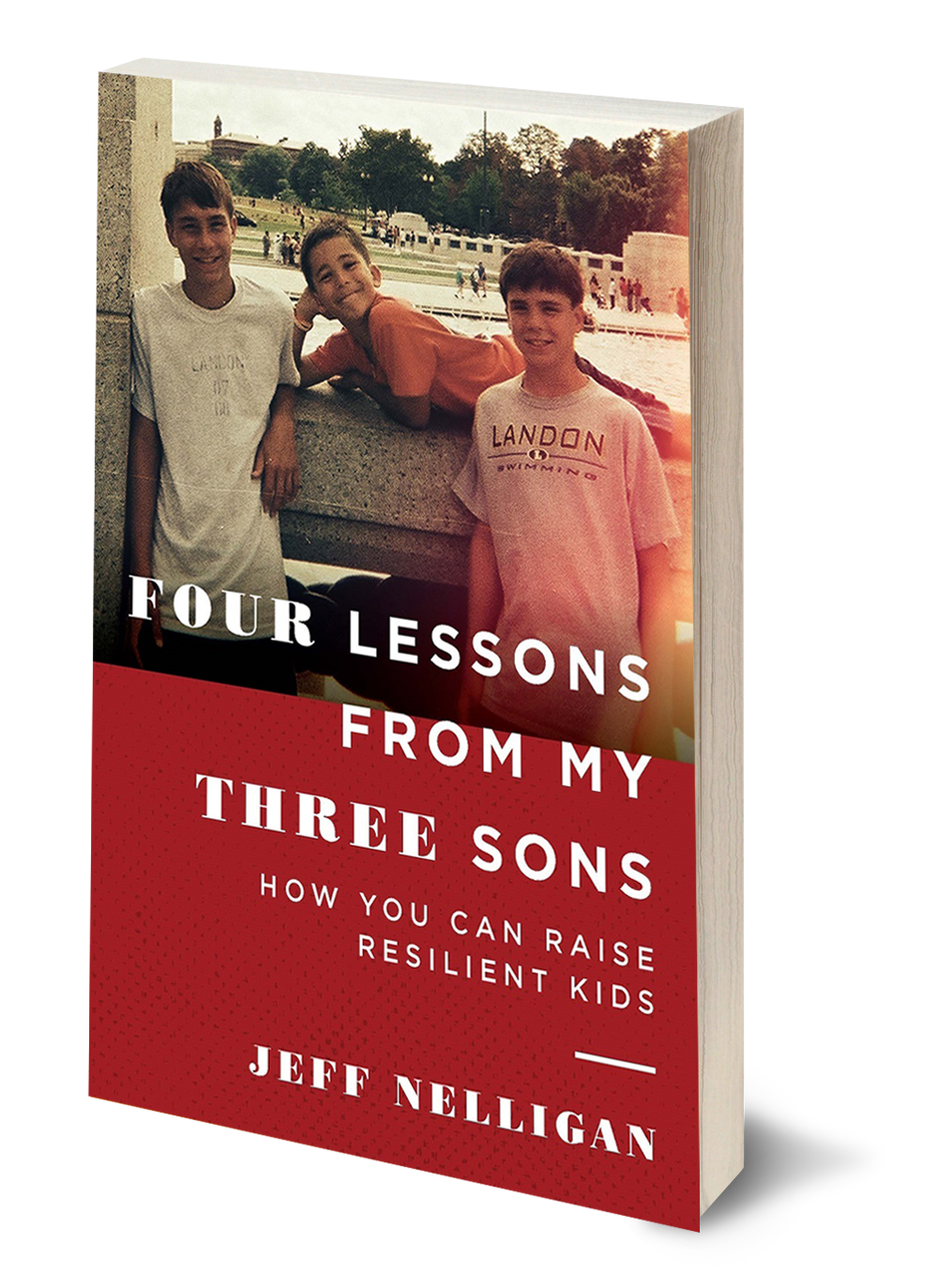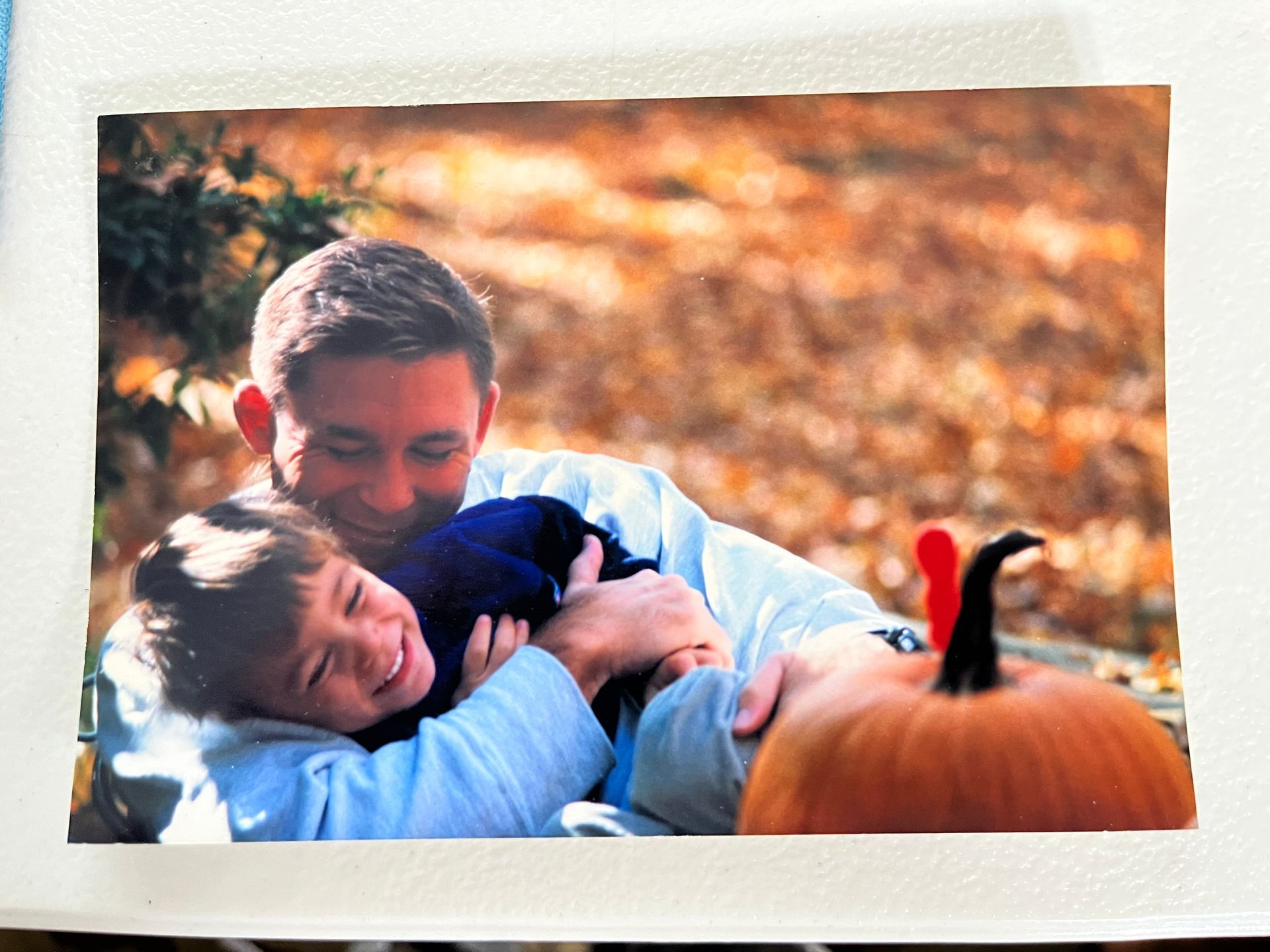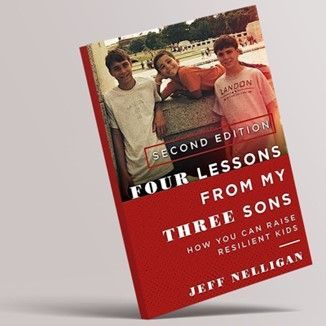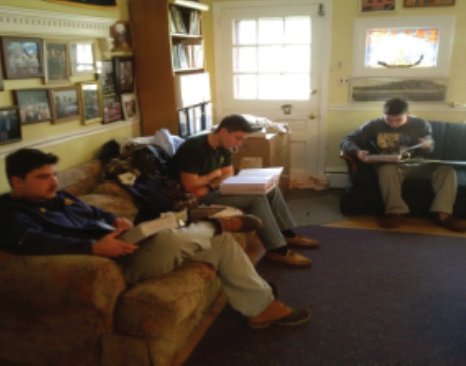Teach basic courtesy
"If you're five minutes early, you're late!"
“Central to his life, Neil Armstrong…had a private code of personal conduct.”
Bret Stephens, The Wall Street Journal
“We learned about honesty and integrity. That the truth matters...that you don’t take
shortcuts or play by your own set of rules...and success doesn’t count unless you
earn it fair and square.”
Michelle Obama, Former First Lady of the United States
_______________
From a famous astronaut to a revered First Lady the message is clear: Personal
conduct is the human touchstone. Virtue, self-control, kindness and perseverance –
these are the basic values key to living a consistent, satisfied life.
As Nellie always says, courtesy costs nothing, but buys everything. And of course,
there’s the great irony. Because basic conduct is simple. It requires no talent and no
skill whatsoever. It’s not difficult to wear modest, presentable clothing, to comb
your hair or tuck in your shirt and refrain from obscenities. There’s no intellect
necessary in looking into someone’s eyes when you speak with them. There’s no
expertise needed in shaking hands with an adult and saying Mr., Mrs., or Ms. How
hard is it to be pleasant and to control one’s temper?
These are the easiest, simplest tasks there are. How can a kid fail to grasp that this is
the way to act?! Steadfast, conscientious behavior – every way, every day – is
manifested in a range of ways. For me, the conduct of a kid came down to three
elements: Basic courtesy, reflexive follow-through, and self-awareness.
Here’s one tale….
___________
“If you’re five minutes early, dammit, you’re late!”
When I joined the U.S. Army, I was sent to Basic Combat Training at Fort Benning,
Georgia. BCT is a non-stop physical and mental trial and although it is decades past
my persistent memory to this day is of Drill Sergeant Harrison. Tall, strong, big,
and black – a real bad-ass. He was a man with enormous leadership presence from
whom I learned a lifetime lesson which I passed to my sons.
When our 40-man platoon had to arrive at any area on the base, Drill Sergeant
Harrison demanded that we get there wayyy ahead of time. When the last couple of
guys would come running up to the platoon’s formation, you’d hear it loud and
clear – “If you’re five minutes EARLY, dammit, YOU’RE LATE!” It was jarring
and I heard it hundreds of times. T
That phrase and that ethos stuck in my mind long
after leaving Fort Benning. When the eldest son reached the age of six, I carefully
and colorfully shared with all three boys that tale of my tough Drill Sergeant and
the reason for his call to action. Hence, from their earliest years, my boys heard that
phrase incessantly. In fact, it was Dad’s first “saying” and rightly so.
Because consider: What is the most common situation involving parents and kids?
Going somewhere.
And that’s why all four of us would yell it out in the countless occasions in which I
was taking the sons somewhere - school and practices and errands and playdates
and bar mitzvahs and birthday parties and medical appointments – you name it. On
our jaunts I explained to them that being early highlights responsibility and allows
for last-minute disruptions. Being early shows respect and pinpoints an individual
who is organized. Being early for anything allows you to see how situations are
shaping up and gives a kid a sense of calm before whatever event he or she is
attending heats up. There’s no anxiety in being early. It makes you ready. Being
early became habitual and we delighted in it.
My three sons learned the corollary – that being late is rude. Period. Not being
punctual is lazy and selfish. Being tardy prompts excuses. Being late, in fact,
becomes habitual.
“Boys,” I would ask them, “How do you feel about that big-time loser coming into
a classroom when everyone is already in their seats, or running up to practice when
everyone’s already on the field? Or waiting for a friend to show up at a movie?”
Then one day, because the real world never fails to instruct, it happened. The four
of us were in the school auditorium for an evening function. The program had
already begun and the Principal was speaking. And then the Adler family showed
up, making a scene with the noise of the heavy doors opening and footsteps and the
scraping of chairs while sitting down.
Afterwards, we were standing around and Mr. Adler, whom I knew from school and
the neighborhood, walked up and asked if he’d missed anything, saying “We were
late getting here because we’re always so damn busy.” I paused a beat, ensured the
boys were listening, and then replied with as much control as I could, “Yeah, I hear
you. Good thing the Nelligans are never busy.” Adler immediately gave me a
hostile look and hustled away.
My three sons looked at me with wide-eyes and grins; they couldn’t believe I’d
actually said something that pointed in a public setting. They were too polite to
laugh at the time but when we got into the car later they were howling.
Of course they were aware our family had as much going as any other family. More
important, they reveled in the fact that I was bold enough to call out an adult for a
patently lame excuse.
Being ahead of time, not on time, is the easiest thing to manage. It requires no
cleverness, no magic. “Guys,” I’d say, “If we can’t pull this off, how are we going
to follow through on the tough stuff?!”
Over the years there was never a week where the phrase wasn’t uttered a half dozen
times. That’s because as I said, with parents and kids there is always somewhere to
be. You are always arriving. The greatest joy was my 6-year-old son yelling the
signature phrase and kids and parents looking on in puzzlement.
There was another slogan Drill Sergeant Harrison used that became a family
punchline. When the boys and I would see kids and parents show up late for
something when we were already there and ready for anything, I could count on one
of my sons cheerfully proclaiming to us, “And when you’re LATE, dammit,
YOU’RE WRONG!”
#####











